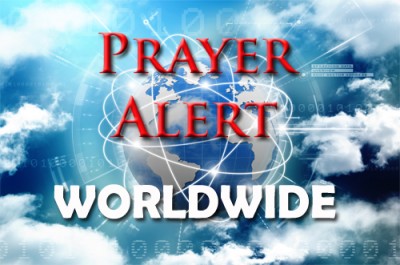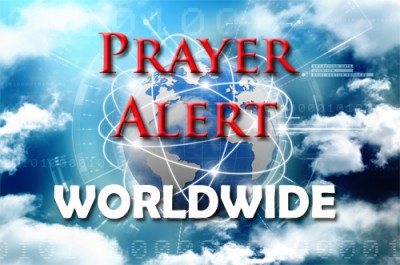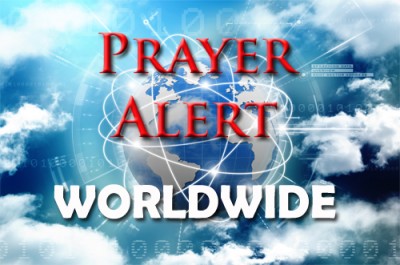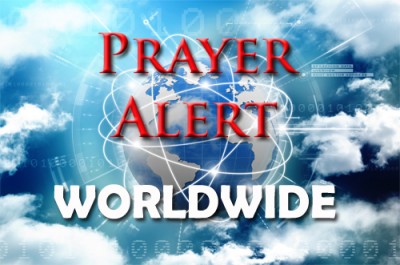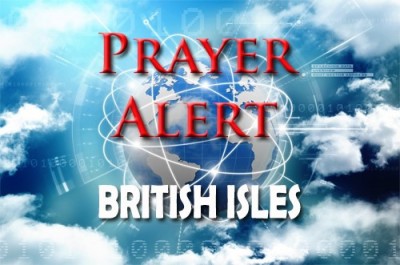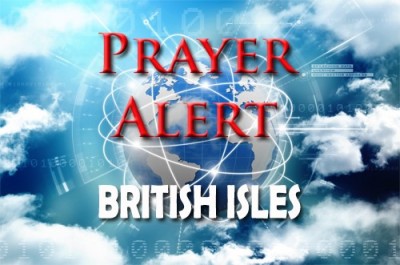Nagorno–Karabakh: failed ceasefire and fake news
22 Oct 2020Fighting continues despite an agreed ceasefire; the Red Cross reports ‘hundreds killed’ in the conflict over Nagorno-Karabakh. Turkey and Israel are offering drone support and technologies. Azerbaijan wants to gain control of as much of its claimed territory as possible. Armenians have mobilised to stop it. The Red Cross reports indiscriminate shelling by both sides into towns and cities far from contested areas. On 21 October Russian bombers made a powerful air strike on a convoy and assembly point with Syrian mercenaries in Nagorno-Karabakh. However researchers found old video footage re-edited and wrongly labelled as portraying recent events. While the majority of online media is news reports, official government information or campaign slogans and images, there is doctored or old footage. Disinformation in conflicts is not uncommon, where accessing accurate information can prove difficult. Pray for peace in this part of the Caucasus: it’s a crisis entangling Russia, Turkey, Israel, Iran, and Azeri and Armenian diasporas.
Global: Covid relief funds corruption
22 Oct 2020Nearly half of world exports come from countries that fail to punish foreign bribery. That’s half of G20 countries and eight of the top 15 global exporters. Since 2018, fewer countries have been actively working against foreign bribery. One obstacle to enforcement is shell companies which cover up payments, making it difficult for authorities to trace the origin and destination of money. But even when countries actively enforce against foreign bribery, victims’ compensation is rare and most proceeds of corruption are never returned to countries or citizens. Citizens of countries where multinationals bribe public officials pay higher prices than they otherwise would for possibly lower-quality goods and services. Public money wasted on unnecessary contracts and deals deprives people of essential services like education and healthcare. The EU’s seven-year budget for Covid-19 recovery funds are at risk of abuse unless open, data-driven mechanisms to protect public contracts are put in place.
Nigeria: police shoot anti-brutality protesters
22 Oct 2020On 21 October Lagos police opened fire on protesters after twelve days of demonstrations against police brutality. The shootings took place at a toll gate after Lagos officials had imposed a 24-hour curfew on 20 million people in a bid to bring the protests to an end. But the demonstrations against the Special Anti-Robbery Squad (SARS) show little sign of slowing down. SARS should tackle robbery, kidnappings and other violent crime, but has been widely criticised for human rights abuses including torture, extortion and extrajudicial killings. Plain clothes police officers frequently target young men with tattoos, dreadlocks, and expensive cars arbitrarily. The Nigerian army has tweeted out stills of news reports about the ‘alleged’ shootings with the words ‘fake news’ plastered across them in red letters. However, Amnesty International said there is disturbing credible evidence that they actually took place. See also
Afghanistan: a gloomy future
22 Oct 2020Following the terrorist attacks of 9/11 and the Taliban Government refusing the USA’s demand for them to surrender Osama bin Laden, the longest war in US history began, killing 3,500 coalition soldiers and 110,000 Afghans. A Taliban insurgency continues, and its forces now control nearly 20% of Afghan territory. Almost half the land is ‘contested’, and the Taliban is stronger today than at any time since the war began. A large-scale US effort to defeat the Taliban would prove costlier than the American public (and therefore any president) is willing to bear. In February 2020 the Taliban agreed to stop their attacks on coalition forces and Afghan civilians, and the USA and NATO agreed to remove their forces by May 2021. Once that happens, there will be nothing to prevent civil war because Pakistan, India, Russia, Iran and others will back their own proxies. Nobody wants a vacuum of power in the country.
Prayer canopy: British values
16 Oct 2020From a prayer letter sent to European intercessors: ‘The British Empire once believed “the sun would never set” based on a firm belief that God was with us because of our faith built on Christian values. The Church can no longer say, “British values are Christian values”. To be British is no longer to be Christian. UK’s leaders increasingly move us further away from the Biblical values that once underpinned both our democratic and legal systems, which were envied by much of the world. I paint a gloomy picture of the nation I love, but if we are to pray effectively in the current worldwide pandemic, I believe nations should be questioning their values and morals. Do we first love God and secondly love our neighbour as ourselves? The future of the UK depends on the next few months. Pray for the national day of prayer currently being proposed. Pray also that the European Union of Prayer meeting will still be allowed in London from 26 to 30 October with current Covid 19 restrictions. May God make a way with a reduced number of participants.’
Niger: abducted priest freed after two years
15 Oct 2020When Fr Pier Luigi Maccalli, now 59, was kidnapped two years ago by unknown armed men from his parish of Bamoanga, it left the communities he had served for 11 years in shock. Now he is understood to have been freed in northern Mali with four other hostages also held by Islamist extremists. The new Malian transitional government met the hostages. Their release, and that of some suspected militants, fuelled expectations of an imminent prisoner swap. It is not clear if ransoms were paid.
Corrupt Kenyan police found guilty
15 Oct 2020This week the International Justice Mission invites us to join in praising God for a huge step forward in the class-action lawsuit that IJM Kenya helped bring against police, demanding greater accountability. One of the requests in the petition has been granted, and the court has ordered the inspector general to investigate 22 cases of police killings that were documented and presented as part of this petition. This case is important because it shows that the Kenyan government can be held accountable for the actions of its officers.
New coronavirus constraints
15 Oct 2020On 14 October England’s chief medical officer said a three-tier alert level system would not be enough to get on top of the coronavirus, and local authorities on very high alert would likely have to introduce further restrictions. On 21 September the Scientific Advisory Group for Emergencies (SAGE) warned that failure to implement tighter coronavirus restrictions would have ‘catastrophic consequences’. SAGE recommended the imposition of a two-week ‘circuit-breaker’ lockdown to curb coronavirus spread, but the Government ignored this advice (see) Meanwhile England’s three-tier restriction system has begun, with most areas currently in the lowest tier. Northern Ireland will extend the half-term holidays for schools, as well as other new measures aimed at curbing the virus spread. Wales is considering a short circuit-breaker lockdown.
